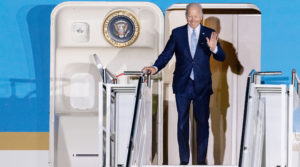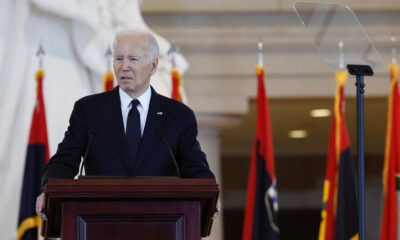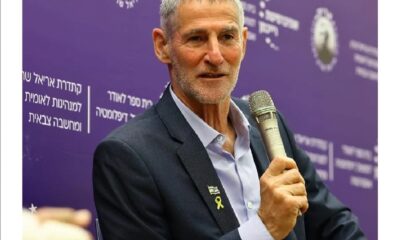
OpEds

Fist bumps and friendship: Biden’s Middle East visit
While South Africa continues to shun and slate Israel at every turn and has discouraged high-level political visits to the Jewish State, US President Joe Biden last week completed a four-day trip to Israel and Saudi Arabia. This is his first visit to the Middle East since becoming president in 2021, a year after the chaotic American withdrawal from Afghanistan. Biden has met every Israeli prime minister since Golda Meir in 1973, and this was his tenth trip to Israel. The world was watching.
Biden met new Prime Minister Yair Lapid, who is leading the government as the country heads for its fifth election in three years. Biden also met with beleaguered opposition leader Benjamin Netanyahu, who is hoping to make a spectacular comeback to power in November’s polls. Biden visited the Yad Vashem Holocaust Museum and pledged support for the new Iron Beam laser defence system that builds on the Iron Dome anti-rocket weaponry. He said he favoured diplomacy to stop Iran developing nuclear weapons, while Lapid said there had to be a credible military threat to Iran if it does so. The allies agreed to disagree.
Some controversy arose with Biden’s visit to an East Jerusalem hospital, without Israeli officials. Critics charged that this was tantamount to undermining Jerusalem’s status as the united capital of Israel. Biden brushed this off. He announced a $100-million (about R1.78-billion) package for Palestinian hospitals.

The Palestinians were virtually ignored by President Donald Trump, but Biden made a point of visiting Bethlehem to meet with Palestinian Authority President Mahmoud Abbas. Biden said the time was not ripe for restarting negotiations (paralysed for over a decade), but nevertheless paid lip service to an increasingly unlikely two-state solution to the Palestinian-Israeli conflict. In addition to the support for health, Biden announced a $316-million (R5.4-billion) aid package for the Palestinians, but no firm plan for reviving statehood talks. He also announced resumption of US funding to the UN Relief and Works Agency (UNRWA) for Palestinian refugees, which had been stopped by Trump.
Last Thursday, Saudi Arabia announced that all flights to and from Israel would be allowed to overfly its airspace. Biden’s flight on Air Force One was the first to make the trip. This is a major win for Israel’s aircraft, which previously had to extend trips by flying around and not over the Saudi Peninsula. The move is evidence of further bridge-building with the Saudis, and perhaps a prelude to full recognition of Israel and the establishment of formal diplomatic relations. This would be a big prize indeed for Israel.
The Abraham Accords – which normalised Israel’s relations with Bahrain, Morocco, Sudan and the United Arab Emirates – is one of the few Trump-era initiatives that the Biden administration has not sought to reverse. But Saudi Arabia is still not ready to join the accords, despite burgeoning behind-the-scenes ties with Israel and its tacit support for the Gulf States’ participation. The two recently agreed to Saudi sovereignty over two disputed islands in the Red Sea. Biden’s visit may prod the countries closer together.
When campaigning for president, Biden had strongly condemned the murder of journalist Jamal Khashoggi at the Saudi Embassy in Istanbul in 2018. He vowed to make Saudi Arabia a “pariah”. Now, the world was watching as he met Crown Prince Mohammed bin Salman (known as MBS), widely suspected to have given the orders for the assassination. Realpolitik prevailed over ideology in the Red Sea port of Jeddah as Biden and MBS performed an awkward fist bump. It was not quite the same as a handshake, but an acknowledgement of friendship nevertheless. The gesture quickly went viral on social media, evoking equal measures of disgust at this seeming hypocrisy and affirmation of the relations between the two states.
Biden also urged Saudi Arabia to increase its oil production, to counter the steep rise in the petrol price since Russia invaded Ukraine in February. The US economy – like many around the world – is struggling with high fuel and food prices, and this is set to disadvantage Democrats in the congressional midterm elections in November. The Saudis made no public promises in this regard.
South Africa condemned the Abraham Accords, showing just how out of touch it is with a much-changed Middle East. The Palestinian issue will no longer be able to prevent relationships that make business sense, and military sense as these countries face a common enemy in Iran. While these high-level trips are about the optics and photo opportunities, they also cement ties between nations. Sometimes, South Africa seems to be more anti-Israel than the Palestinian leadership. It should wake up to the new reality.
Steven Gruzd is an analyst at the South African Institute of International Affairs in Johannesburg. He writes in his personal capacity.










